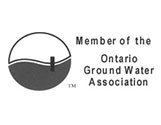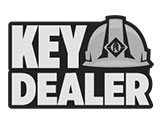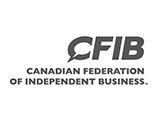Food scraps make up 10-20% of household waste. The idea behind garburators is to shred food into small pieces so they are almost liquid and can be managed by sewers and wastewater treatment plants. Garburators are installed under the kitchen sink between the sink drain and trap. Blockages occur in garburators when foods like corn husks, leaves, or starchy potato skins are put through the grinder.
Remember that garburators, although they are breaking down foods, they connect to the same pipes in other sinks in your home. Certain food items will sink to the bottom of pipes or collect in pipe bends and clog drains.
Do not put these through a garburator:
- Non-food items: It happens. Utensils get left in the sink and the garburator is switched on and these items find their way down the drain. It’s important to always double check before flipping the switch.
- Grease: Bacon fat, coconut oil, olive oil, and more should not be disposed of in regular sinks, so don’t put them down your garburator. When oils cool they solidify and clog.
- Fibrous foods: Asparagus, celery, lettuce, potato peel, artichokes, etc do not shred the same as other foods and can get caught in the blades.
- Apple cores, fruit pits, and seeds: If the food is too solid to be processed through the shredder. These can go into your compost bin.
- Others: coffee grounds, bones, eggs shells should all go into your compost bin.
When to call the plumber
- There’s a weird odour
- Blades are not turning or there’s a strange noise
- The drain is not emptying properly
- A non-food item has fallen into the garburator
When to replace the garburator
Similarly to other appliances in your home, garburators age and need to be replaced. It’s always a good idea to ask how old the appliances are in a home that you’re looking to purchase. If it’s older than 10 years, start considering a new one.
Other signs it should be replaced
- The blades have become dull
- A leak costs more to fix than purchasing a new machine
- Odours do not go away
- You’re frequently resetting the machine
- It clogs more often than not
This is not a full list but covers the common issues that can arise with garburators. Do not put your hand down the drain. Turn the unit off and use a flashlight to see down inside. If the obstruction is visible use tongs or another long-handle device to retrieve it. Keep a firm hold on the device. When you call Adam’s Plumbing and Pumps we offer no emergency pricing.
Adam’s Plumbing and Pumps services local farmers and local producers with their every day requirements to earn their livelihood. Whether you are a dairy farmer or operate a chicken farm, we want to help you ensure your animals have water, especially in emergency situations. Our team is experienced in working with potato farmers and servicing process water systems and fixtures. We install pipes and fixtures for large agricultural properties.
We can help with everything from well and cistern excavation, trenching, and installation, to water pumps, annual water bowls, water treatment, and everything in between. Our team enters every project with the environment in mind.
Cleanliness and freshness is essential for the wellbeing and productivity of your livestock. Animals, like humans, are picky about the state of their water. They will not drink it if the taste or smell is not appealing. Potable water must have zero E. coli and zero coliforms per 100 ml. Any signs of these are an indication of contaminated water supply. Adam’s Plumbing and Pumps offers no emergency pricing.
We can help with:
- Effluent and wastewater removal
- Drainage
- Excavation and trenching
- Well and cistern installation
- Pump systems
- Water treatment systems
- Constant pressure systems
- Water Jetting





